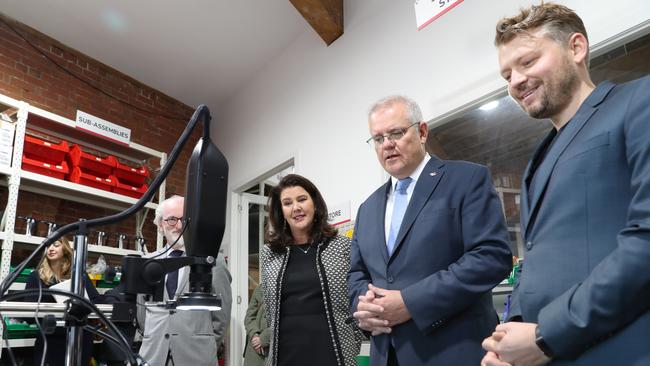Breakthrough Victoria facing second Federal Court case, allegations of ‘obstruction’
A co-founder of medtech company Seer Medical has lodged a second legal claim alleging Breakthrough Victoria of effectively sinking the value of his shares.

The founder of a start-up that received a hit of funding from Victoria’s venture capital fund has launched a second case against it, alleging Breakthrough Victoria was “obstructive” of efforts to raise money and was trying to secure a “better deal for itself”.
Dean Freestone, co-founder of Seer Medical – a medtech company launched in 2016 that created at-home monitoring devices for people suffering from epilepsy – lodged another claim in the Federal Court accusing Breakthrough Victoria of effectively sinking the value of his shares in the company after claiming in a separate matter that he had been unfairly dismissed from his job.
Breakthrough Victoria initially invested $30m with Seer through a convertible deed on July 2022. But in documents sent to shareholders on Wednesday morning, Dr Freestone claimed his efforts to raise more money for the company were kiboshed by the fund, which has disputed controlling $2bn and instead says it has invested more than $350m.
“BV became obstructive in relation to Seer’s attempts to raise additional capital and, instead, sought to misuse its consent rights to try to achieve a better deal for itself,” the documents say.
Dr Freestone claimed Breakthrough Victoria did this by seeking amendments to the deed and “preferencing potential financiers in a way that was not in the interests of Seer or its shareholders”.
“Further, delays in Seer obtaining additional capital or other funding benefited BV because it had the potential to cause significant declines in Seer’s value and give BV a greater share of ownership upon conversion of the convertible note,” the documents say.
Responding to a list of Dr Freestone’s claims, a Breakthrough Victoria spokesman said: “As this matter is before the courts it would be inappropriate to comment.”
Breakthrough Victoria is yet to file a defence in either of the matters lodged by Dr Freestone, but has launched an interlocutory application with the court. The Australian has applied to the Federal Court to receive those documents.
As funding negotiations broke down, Dr Freestone alleged Simon Bartlett of EWM Group became a key player as a representative of a group of shareholders. “During the period from around January 29, 2024, to February 5, 2024, Bartlett and BV continued to negotiate final terms of the proposed funding,” Dr Freestone has alleged in the documents.
Last November, Seer was delayed in raising additional capital and its directors put in place a safe harbour “to mitigate the risk of insolvent trading” and negotiations kicked off with Breakthrough Victoria about bridging finance, according to the documents.
In the same month, Dr Freestone said Breakthrough Victoria was discussing fundraising plans with healthcare investor KPRx about a possible injection of $60m, based on a valuation of Seer at $60m. Dr Freestone said KPRx specialised in businesses in distress, and Breakthrough Victoria was working directly with KPRx without oversight from Seer.
At the same time, Dr Freestone said Seer had already been in “extensive” negotiations with US-based venture capital group Safar partners, which he said offered a $15m investment by way of convertible note with a company valuation of $90m overall.
Dr Freestone claimed he and Seer’s other co-founder, Mark Cook, met with a Canaccord banker who had been in discussions with Breakthrough Victoria and KPRx, and who said there were plans to invest in Seer but only if it was valued at $0.
As well, Dr Freestone was asked if “he would be prepared to sign over all of my stock and board rights to keep Seer operating”. He alleged the banker said if he did not accept the deal, Breakthrough Victoria and KPRx had a plan to block other investments and send Seer into receivership.
Ultimately, Safar made an investment deal to Seer at the same time as Breakthrough Victoria made a finance bridging offer, Dr Freestone said.
But the KPRx deal fell through, as did alternative proposals and Seer’s entire board resigned on January 24, Dr Freestone said.





